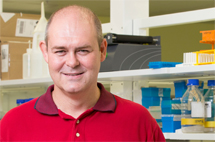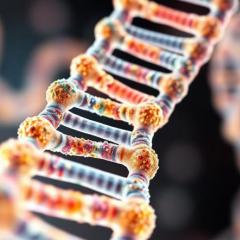 Invasive procedures for removing non-melanoma skin cancers such as freezing or surgery may soon be a thing of the past.
Invasive procedures for removing non-melanoma skin cancers such as freezing or surgery may soon be a thing of the past.
A Queensland researcher may have found a new, less invasive way to treat the disease, which affects approximately 133,100* people in the state each year.
Dr Graham Leggatt of The University of Queensland Diamantina Institute, based at Translational Research Institute, is investigating anti-cancer immune cells as an alternative therapeutic option for non-melanoma skin cancer.
His work is being supported by a $100,000 Cancer Council Queensland research grant.
Dr Leggatt is thrilled with the announcement.
"Thanks to the support of Cancer Council Queensland, we will now be able to establish the role of immune cell therapy in clearing advanced non-melanoma skin cancers," he said.
Cancer Council Queensland CEO Professor Jeff Dunn congratulated Dr Leggatt and The University of Queensland Diamantina Institute for looking for new ways to treat non-melanoma skin cancers.
“This research is particularly relevant in our country, and here in Queensland, where we have the highest rates of skin cancer in the world,” he said.
“As a result, non-melanoma skin cancer, which includes both squamous cell carcinoma and basal cell carcinoma, is the most commonly diagnosed cancer in Australia with approximately two per cent of the population treated for the cancer in 2002.
“Current methods for treatment can be physically invasive and leave scarring. A gentler, less-invasive method of treatment would be beneficial for the long-term physical and mental recovery of the patient.”
Dr Leggatt’s project is one of 22 in Queensland that has received grants from Cancer Council Queensland for 2013-2014. Overall, the grants this year totalled $2.178 million.
Seven other projects involving University of Queensland researchers were recently awarded funding from Cancer Council Queensland:
Associate Professor Stephen Rose, who heads up the UQ Centre for Clinical Research, Royal Brisbane and Women’s Hospital, for his study into individualised image-guided therapy for patients with Glioblastoma Multiforme (GBM), an invasive brain tumour.
Professor Gregory Monteith for his study into the identification and characterisation of calcium signalling modifying proteins as drug targets for basal breast cancer.
Dr Mat Francois for his study into the identification of molecules that will enable the manipulation of lymphatic vessel growth with the view to developing new therapeutic avenues for cancer or lymphedema.
Professor Tom Gonda for his study into switching off the MYB gene in cancers by re-imposing the ‘elongation block’.
Professor Melissa Brown for her study into the role of BCRA non-coding mutations in breast cancer susceptibility.
Dr Benjamin Hogan for his study into determining a mechanism for regulating lymphatic vascular precursor cell migration.
Dr Fiona Simpson for her study into the role of the epidermal growth factor receptor trafficking in tumor progression and patient therapy resistance.
For more information about Cancer Council Queensland, visit http://www.cancerqld.org.au.
Media contact:
Caroline Davy, Marketing and Communications Manager, The University of Queensland Diamantina Institute, c.davy@uq.edu.au, (07) 3443 7027, 0431 658 934
* Data is from Cancer Council Queensland, 2009



